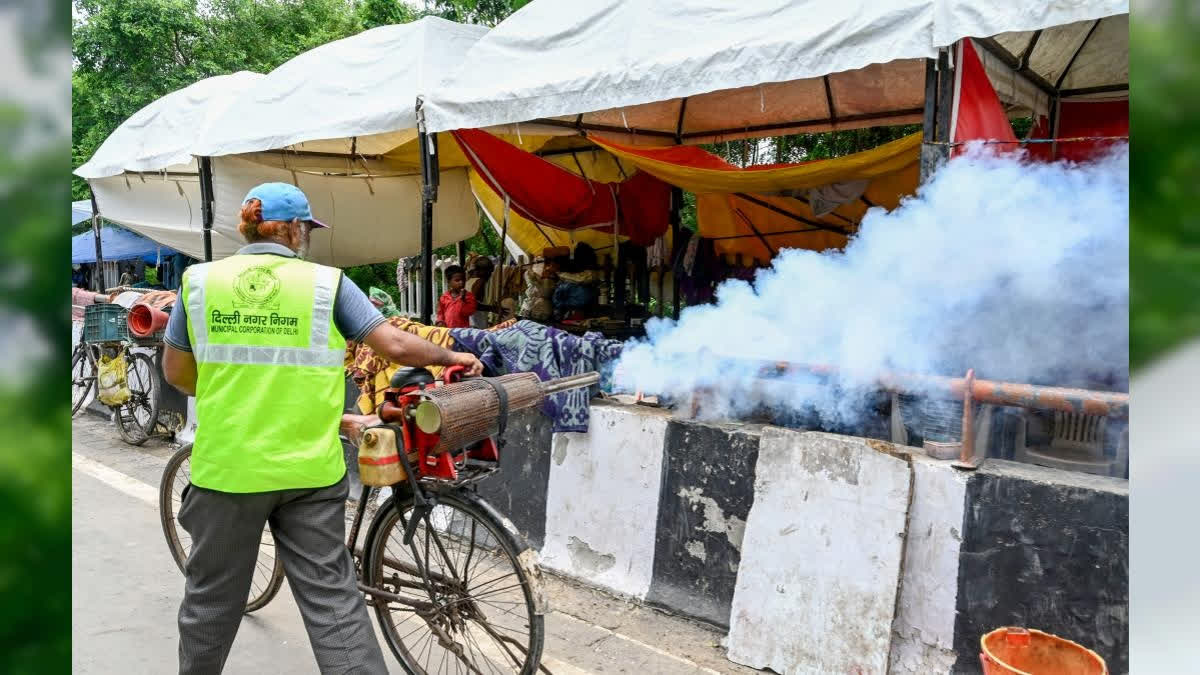New Delhi: India accounted for half of all estimated malaria cases in the South-East Asia Region (SEAR) in 2023. Just over 48 per cent of all estimated cases in the region were due to P. vivax, revealed the World Health Organisation’s (WHO) latest World malaria report released on Wednesday.
However, estimated malaria deaths reduced by 82.9%, from about 35,000 in 2000 to 6000 in 2023 in the region. “Between 2000 and 2023, the malaria mortality rate reduced by 88.8%, from 2.7 to 0.3 per 100 000 population at risk. India and Indonesia accounted for about 88% of all estimated malaria deaths in this region in 2023," the report added.
According to the report, the WHO's SEA region had eight malaria-endemic countries in 2023, accounting for 4 million cases and contributing 1.5 per cent of the burden of malaria cases globally.
"From 2000 to 2023, malaria cases reduced by 82.4%, from 22.8 million in 2000, and incidence reduced by 87.0%, from 17.7 to 2.3 per 1000 population at risk (Fig. 2.7a). The decrease can mainly be accounted for by a decrease in India of 17.7 million estimated cases and a decrease in incidence by 93%, from 20 to 1.5 per 1000 population at risk. Sri Lanka was certified malaria-free in 2016," the report said.
Timor-Leste reported zero Indigenous cases for the third consecutive year in 2023. Bhutan reported zero Indigenous cases for the second consecutive year, and Nepal reported only 15 Indigenous cases.
Between 2022 and 2023, decreases in estimated cases were seen in Bangladesh (9.2%), India (9.6%), Indonesia (5.7%) and Nepal (58.3%), whereas the Democratic People's Republic of Korea (47.9%), Myanmar (45.1 %) and Thailand (46.4%) all had an increase.
"The report highlights India's remarkable progress in combating malaria, marked by its exit from the High Burden to High Impact (HBHI) initiative in 2024. This achievement reflects significant reductions in malaria incidence and mortality. However, the sobering reality that India accounted for half of all malaria cases in the Southeast Asia region in 2023 underscores that the disease remains a formidable public health challenge," said Dr Tamorish Kole, chair of the Clinical Practice Committee of the International Federation for Emergency Medicine.
He said that the predominance of Plasmodium vivax in the region further emphasises India's unique epidemiological landscape, necessitating targeted approaches, including robust surveillance systems and advanced treatment protocols.
"While the decline in malaria cases is commendable, the continued burden demands innovative, sustained strategies to achieve complete eradication and safeguard public health," Dr Kole said.
Eradication Of Malaria
According to Dr Kole, to eradicate malaria, India must adopt a multi-sectoral approach emphasising robust surveillance with digital tools, enhanced vector control through advanced mosquito nets and targeted indoor spraying, and widespread deployment of WHO-recommended vaccines. Universal access to diagnostic tests, effective treatments, and innovative drugs for P. vivax must be ensured, alongside community-driven awareness campaigns and culturally sensitive interventions.
"Strengthening research on resistance patterns, addressing social determinants for the spread of malaria and healthcare access, and securing adequate funding through partnerships are critical. Sustained national commitment and equitable resource allocation are key to maintaining progress and achieving complete malaria elimination," Dr Kole said.
